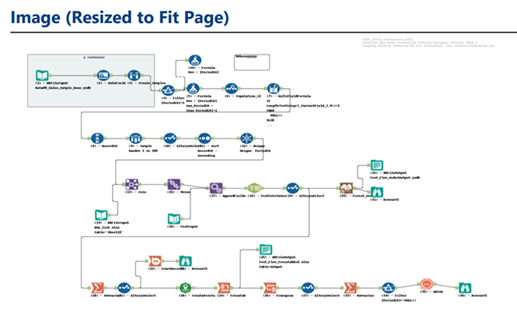This blog post can also be found at the Alteryx Community Engine Works Blog.
Say someone built an Alteryx workflow at your company. What does it do exactly? How does it work? Can you trace it step by step? And just how did they configure these pieces?
As data analysts and engineers, we take it for granted that we can readily convey our understanding of data flows to other analysts and engineers. As business drivers and decision makers, our business rules, processes, and decision criteria are clear to us and our teams.
But as business and data teams become ever more integrated to adapt to accelerating business needs, our requirements and processes grow ever more complex.
As a result, what once was an innocent question born of curiosity grows into an ever more cumbersome task, making you ask, "What does this workflow do, exactly?"
Enter the world of documentation. Being a data consultant, I frequently see the same theme play out. Users love building Alteryx solutions, but they often face business situations like these:
They need to be able to onboard new users and make sure they can support processes developed by existing and off-boarded users.
They need to assure compliance and audit teams that everything they build is auditable and reproducible.
They need engineering to work with them to access the data.
They need to build confidence with engineering teams that they can build and manage their own automated processes.
Alternatively, they should be able to sketch out tested and verified designs that they can easily hand to engineering teams (who will then manage implementation).
Whatever the specific situation, the users need to be able to quickly build documentation in parallel with developing and iterating on their workflows.
When we developed an auto-documentation utility for Alteryx workflows originally, we had positive feedback, but there were a few consistent shortcomings inhibiting adoption:
It did not support workflows with containers
It did not provide an order of tools (the document would not be helpful in rebuilding a workflow)
It did not provide enough details about the configurations of various tools to reproduce the workflow
In addition, we saw a recurring need for sketching images of workflows for easy reassembly. Never the ones to shy away from a challenge, we took it upon ourselves to rebuild the documentation utility from the ground up to address these needs.
Enter the latest and greatest in workflow auto-documentation, the Auto Documenter version 2. Simply click Run to get a download link.
Check out a sample of the outputs:

Read the full documentation here for installation and usage instructions.
Check out our demo video.
Check out our other public projects on our Gitlab
Contact us directly for additional feature requests and support
